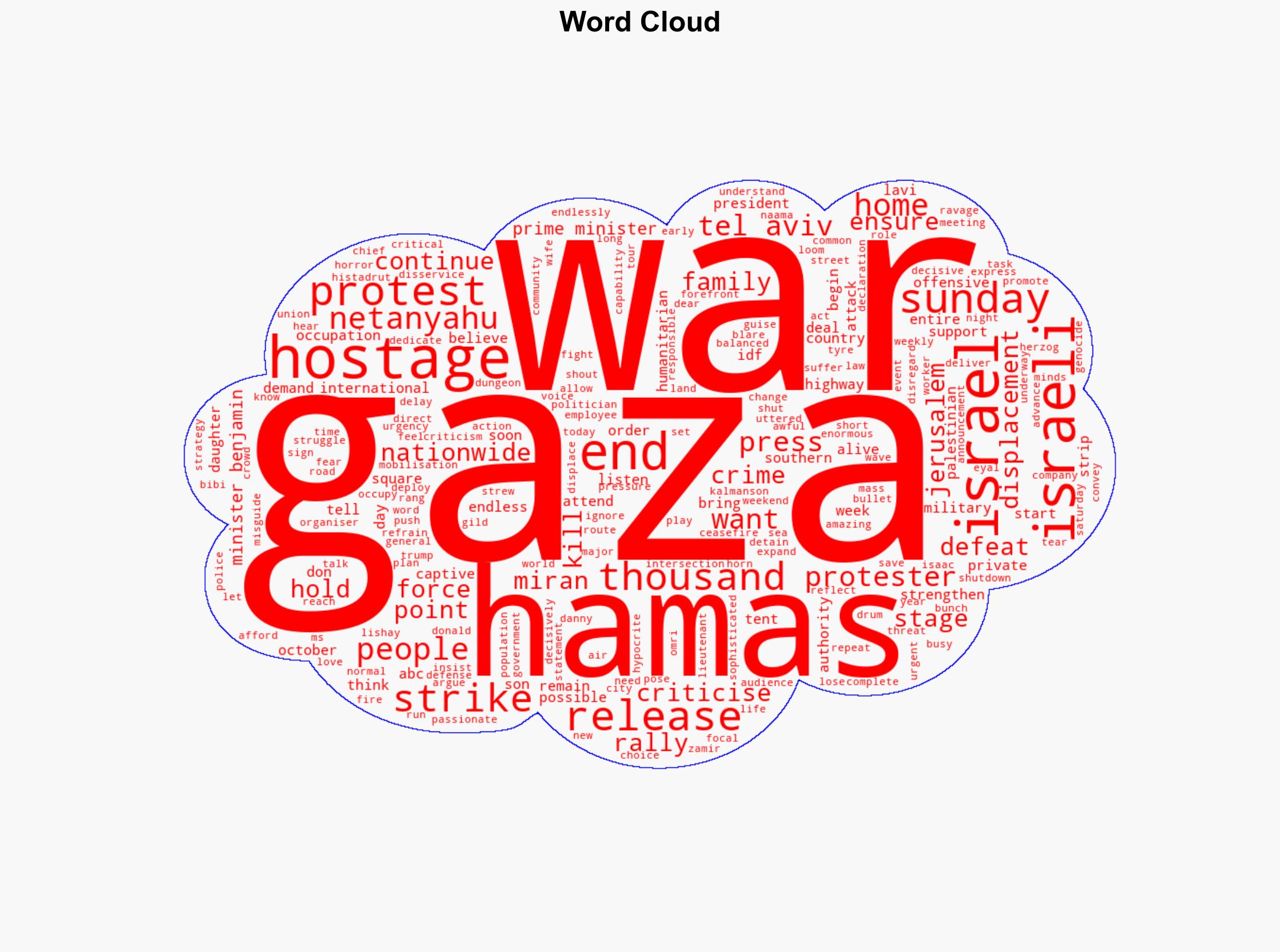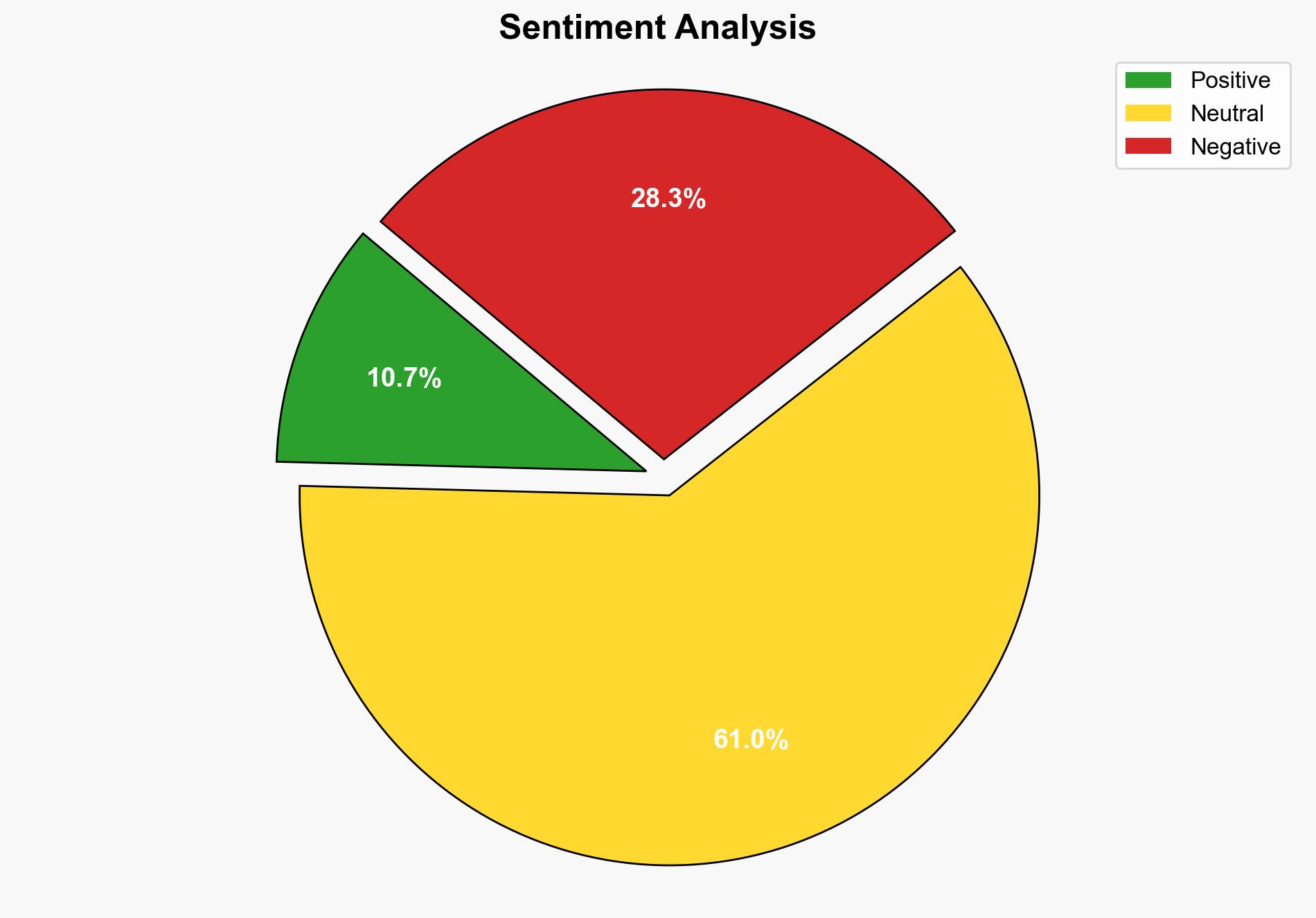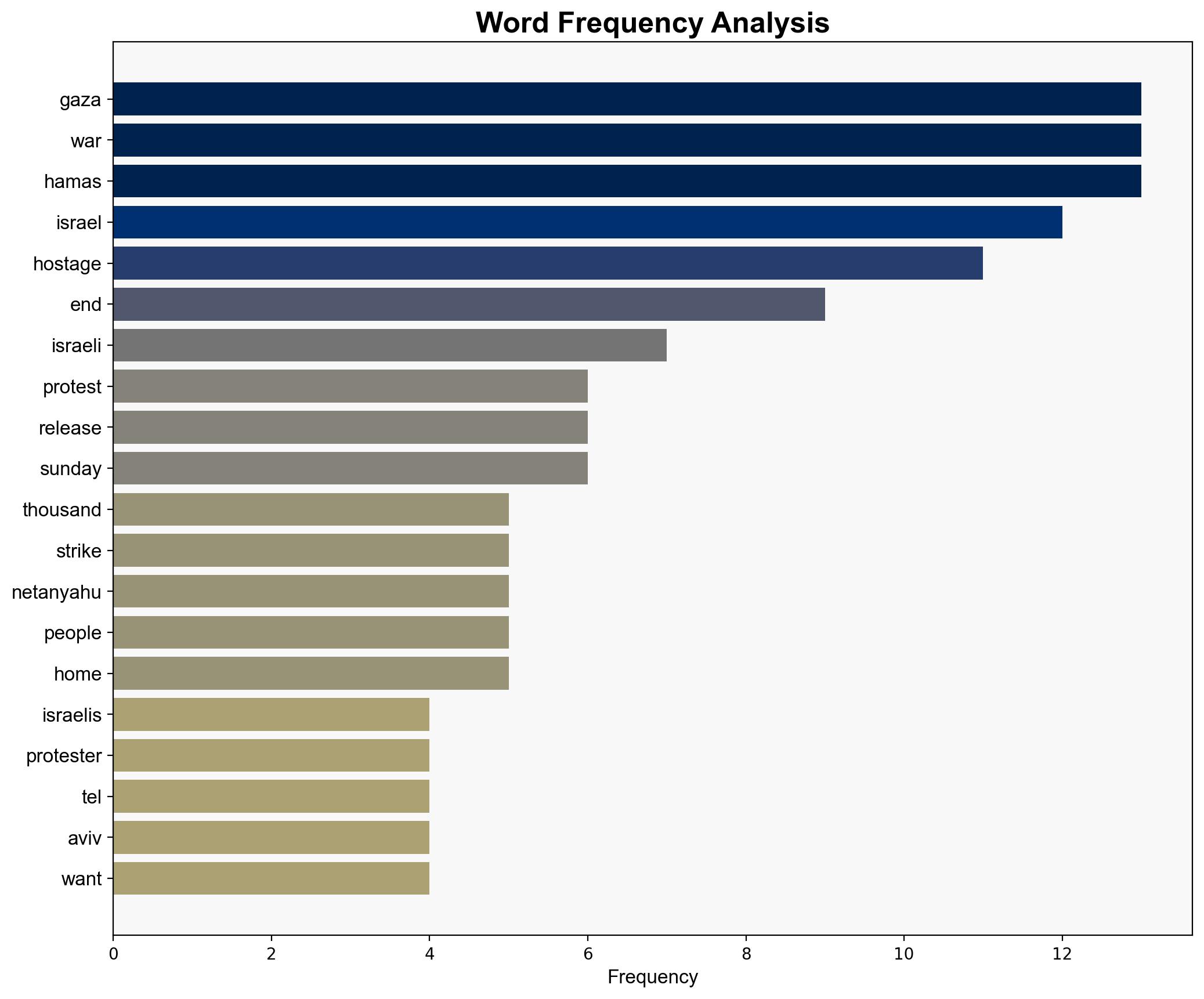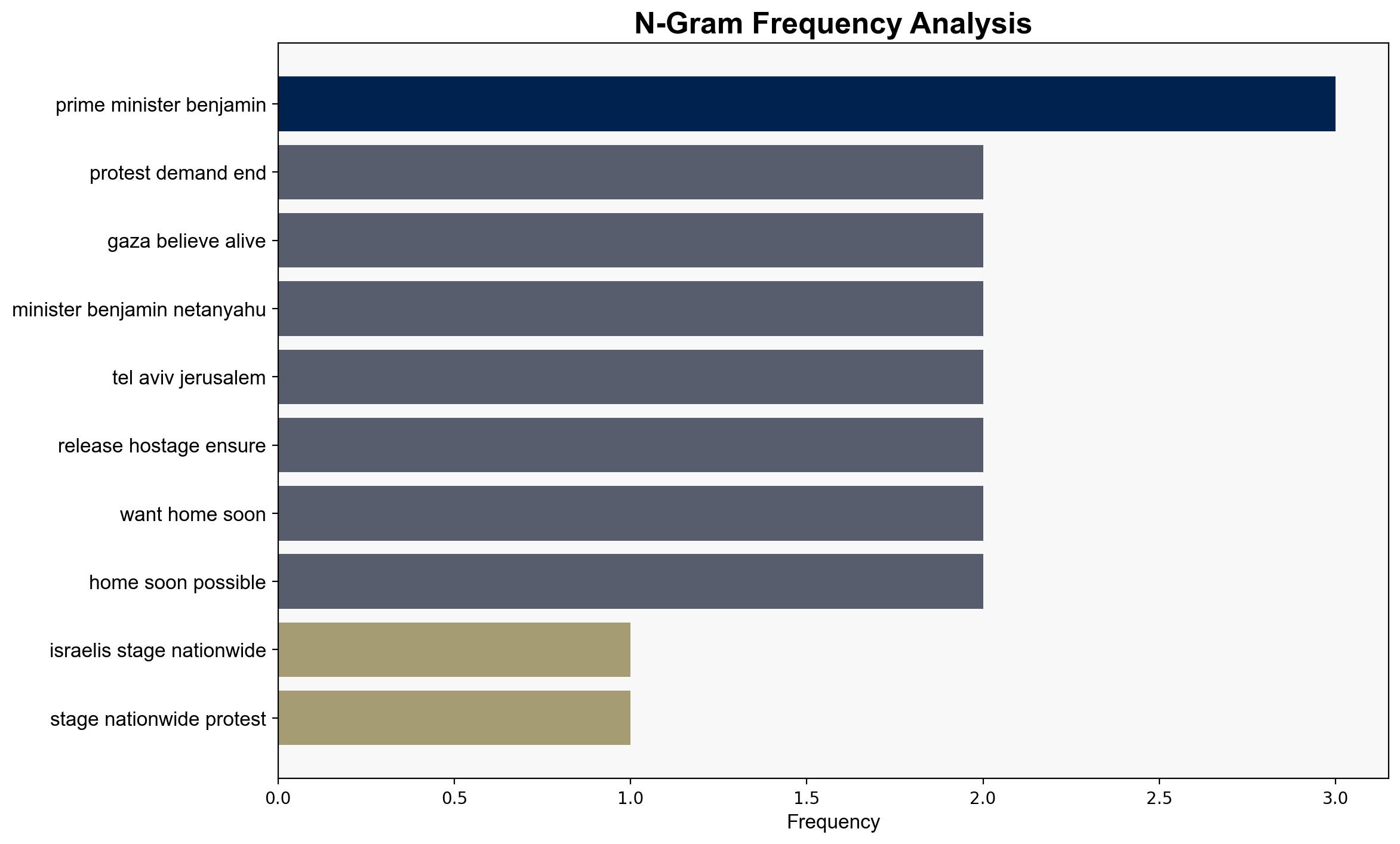Israelis stage nationwide protests to demand end to Gaza war and release of hostages – ABC News (AU)
Published on: 2025-08-17
Intelligence Report: Israelis stage nationwide protests to demand end to Gaza war and release of hostages – ABC News (AU)
1. BLUF (Bottom Line Up Front)
The protests in Israel reflect significant domestic pressure on the government to alter its strategy regarding the Gaza conflict and hostage situation. The most supported hypothesis suggests that these protests could influence Israeli policy, potentially leading to a ceasefire or negotiation efforts. Confidence in this assessment is moderate due to the complexity of internal and external pressures on the Israeli government. Recommended action includes monitoring shifts in Israeli policy and public sentiment, as well as international diplomatic responses.
2. Competing Hypotheses
Hypothesis 1: The protests will lead to a shift in Israeli policy towards a ceasefire and negotiations for hostage release. This hypothesis is supported by the scale of protests and the involvement of significant societal actors like the Histadrut union, suggesting widespread public support for change.
Hypothesis 2: The protests will not significantly alter Israeli policy, as the government remains committed to military objectives in Gaza. This is supported by statements from key government figures, including Benjamin Netanyahu, emphasizing the need to defeat Hamas and secure Israel’s long-term security.
3. Key Assumptions and Red Flags
Assumptions:
– Public protests can influence governmental policy in Israel.
– The Israeli government prioritizes public opinion over military objectives.
Red Flags:
– Potential bias in assessing the influence of protests due to media portrayal.
– Inconsistent data regarding the actual impact of protests on government decisions.
4. Implications and Strategic Risks
The protests could lead to increased domestic instability if the government does not address public demands, potentially escalating into more severe civil unrest. Internationally, prolonged conflict without resolution could strain Israel’s diplomatic relations and increase regional tensions. Economically, continued conflict may affect Israel’s markets and international investments.
5. Recommendations and Outlook
- Monitor Israeli government statements and policy changes closely for signs of shift towards negotiation or ceasefire.
- Engage with international partners to facilitate dialogue and potential mediation efforts.
- Scenario-based projections:
- Best Case: Successful negotiations lead to a ceasefire and hostage release, stabilizing the region.
- Worst Case: Escalation of conflict leads to broader regional instability and international intervention.
- Most Likely: Continued protests with gradual policy adjustments but no immediate ceasefire.
6. Key Individuals and Entities
– Benjamin Netanyahu
– Danny Kalmanson
– Naama Gild
– Lishay Miran Lavi
– Lieutenant General Eyal Zamir
7. Thematic Tags
national security threats, regional focus, public protests, Israeli policy, hostage negotiations





